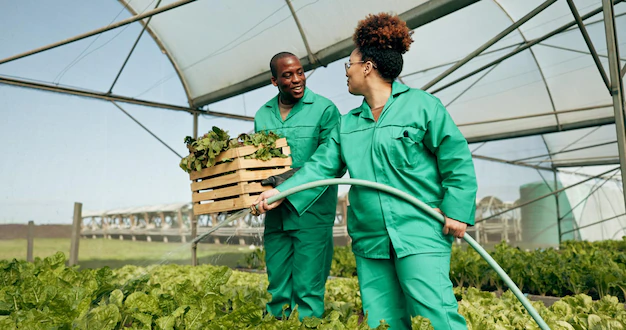Farm safety is a crucial aspect of agricultural operations, especially in South Africa, where farming involves a range of activities that pose risks to workers, equipment, and the environment. Despite the best intentions, many farmers fall into common pitfalls when implementing safety practices, leading to avoidable accidents, injuries, and financial losses. Here are 10 common mistakes South African farmers make when implementing farm safety practices and how to address them effectively.
1. Lack of a Comprehensive Safety Plan
Many farmers operate without a well-documented safety plan, leaving workers unprepared for emergencies and unaware of safety protocols.
Solution: Develop a comprehensive safety plan that includes hazard identification, emergency procedures, and clear safety guidelines. Share the plan with all employees and update it regularly.
2. Inadequate Training
Assuming workers know how to handle equipment and hazardous substances without proper training is a common mistake. This often leads to accidents and equipment damage.
Solution: Provide regular training sessions on equipment operation, chemical handling, and general safety practices. Ensure new employees receive thorough onboarding training.
3. Ignoring Personal Protective Equipment (PPE)
Many farms neglect to provide adequate PPE or fail to enforce its use. Workers often forgo safety gear, increasing the risk of injury.
Solution: Supply high-quality PPE such as gloves, goggles, boots, and respirators. Train workers on its importance and enforce strict policies for its use.
4. Poor Maintenance of Equipment
Neglected machinery and tools can malfunction, leading to accidents and downtime.
Solution: Implement a regular maintenance schedule for all farm equipment. Conduct routine inspections to identify and address potential issues before they escalate.
5. Overlooking Chemical Safety
Improper handling, storage, and disposal of chemicals can harm workers and the environment.
Solution: Store chemicals in secure, ventilated areas away from living spaces. Train workers on proper handling and provide Material Safety Data Sheets (MSDS) for all chemicals used.
6. Lack of Emergency Preparedness
Farms are often unprepared for emergencies such as fires, medical incidents, or chemical spills, which can have severe consequences.
Solution: Equip the farm with fire extinguishers, first aid kits, and spill containment materials. Train workers on emergency response procedures and conduct regular drills.
7. Inadequate Supervision
Leaving inexperienced or untrained workers unsupervised increases the likelihood of accidents.
Solution: Assign experienced supervisors to oversee operations, especially when hazardous tasks or equipment are involved. Ensure supervisors are well-versed in safety protocols.
8. Failure to Identify Hazards
Many farmers do not conduct regular assessments to identify new or evolving hazards, such as broken fences, unstable structures, or wildlife threats.
Solution: Conduct regular farm safety audits to identify and address potential hazards. Involve workers in this process, as they are often the first to notice issues.
9. Overlooking Worker Fatigue
Farmers often underestimate the impact of long hours and physically demanding tasks on worker safety. Fatigue can lead to mistakes and accidents.
Solution: Monitor work hours and ensure workers have adequate breaks. Rotate tasks to reduce physical strain and encourage workers to report fatigue-related concerns.
10. Neglecting Child Safety
In South Africa, where family farming is common, children are often present on farms. Failing to establish safety measures for children can lead to tragic incidents.
Solution: Keep children away from hazardous areas such as machinery zones, chemical storage facilities, and animal enclosures. Educate children on basic farm safety and establish strict rules for their protection.
Benefits of Farm Safety Practices
Implementing effective safety practices benefits farmers in several ways:
- Reduced Accidents: Preventing injuries saves costs associated with medical care, compensation, and downtime.
- Improved Worker Morale: A safe work environment fosters trust and loyalty among workers.
- Legal Compliance: Adhering to South African labor and safety laws helps farmers avoid fines and legal disputes.
- Environmental Protection: Safe chemical handling and waste disposal prevent environmental damage.
Farm safety is not just a legal requirement but a critical component of sustainable farming. By avoiding these common mistakes, South African farmers can protect their workers, assets, and livelihoods. Developing a safety-first culture, supported by training, supervision, and regular audits, ensures that farms remain productive and accident-free. Prioritizing safety is an investment in the long-term success of any farming operation.
Join 'Farmers Mag' WhatsApp Channel
Get the latest Farming news and tips delivered straight to your WhatsApp
CLICK HERE TO JOIN






